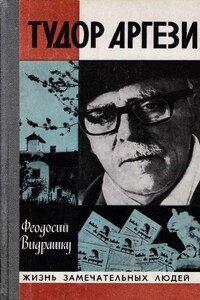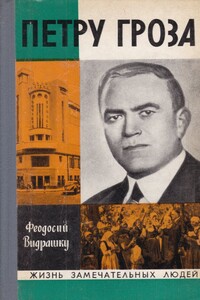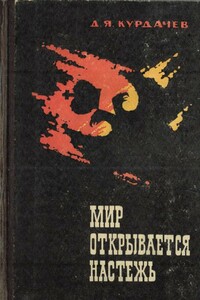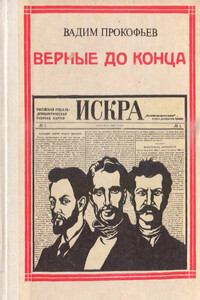Муаммар Каддафи. Падение Джамахирии - [19]
Muammar Gaddafi Interview with Al Jazeera (27 March 2007)
«I have nothing to say to him [Ronald Reagan], because he is mad. He is foolish. He is an Israeli dog»
Muammar Gaddafi Interview with Marie Colvin, 20 June 1986. Sun-Sentinel http://articles.sun-sentinel.com/1986-06-20/news/8602060350_1_moammar-gadhafi-white-house-wife
«What’s wrong with the Spanish? Tell them they do not appreciate their own interests. Tell them we will recognize the Basques. Threaten them with this, and recognize Andalusia»
Muammar Gaddafi Statement (5 April 2011), as quoted in «Libya on the Line: An interactive timeline Browse through a collection of conversations between Gaddafi, Saif al-Islam and other senior Libyan officials» at Aljazeera (11 May 2012) Al Jazeera’s mobile phone wiretaps
«The Libyans said they’ll buy their way out of these three [terrorism] black lists. We’ll pay so much, to hell with $2 billion or more. It’s not compensation. It’s a price. The Americans said it was Libya who did it. It is known that the president was madman Reagan who’s got Alzheimer’s and has lost his mind. He now crawls on all fours»
Muammar Gaddafi SBS Dateline (8 October 2003) «The New Libya»
«There is no state with a democracy except Libya on the whole planet»
Muammar Gaddafi Video lecture at Columbia University (23 March 2006), quoted in BBC News (23 March 2006) Gaddafi gives lesson on democracy.
«The black people’s struggle has vanquished racism. It was God who created colour. Today Obama, a son of Kenya, a son of Africa, has made it in the United States of America»
Muammar Gaddafi Closing remarks at the African Union summit (4 February 2009), quoted in RFI English (4 February 2009) «Kadhafi closes AU summit, division over plans for „United States of Africa“» http://www.rfi.fr/actuen/articles/110/article_2801.asp by ZeenatHansrod
«Reagan is mad. If he were here, I would tell him the truth about us. He hears about us only through hostile sources»
Muammar Gaddafi Remarks quoted in The Pittsburgh Press (3 August 1986) «Gadhafi, the man the world loves to hate» by Marie Colvin (UPI)
«When I met Nasser, he said to me, „I see myself when I was young in you. You are the future for the Arab revolution.“ This meant very, very much to me»
Muammar Gaddafi The Pittsburgh Press (3 August 1986) «Gadhafi, the man the world loves to hate» by Marie Colvin (UPI)
«I have nothing but scorn for the notion of an Islamic bomb. There is no such thing as an Islamic bomb or a Christian bomb. Any such weapon is a means of terrorizing humanity, and we are against the manufacture and acquisition of nuclear weapons. This is in line with our definition of — and opposition to — terrorism»
Muammar Gaddafi Time (8 June 1981) «An Interview with Gaddafi» http://www.time.com/time/magazine/article/0,9171,922551-2,00.html
«The times of Arab nationalism and unity are gone forever. These ideas which mobilized the masses are only a worthless currency. Libya has had to put up with too much from the Arabs for whom it has poured forth both blood and money»
Muammar Gaddafi Remarks (2003), quoted in Nonproliferation Norms (2009) by Maria RostRublee, p. 161
«Did Libya invade Italy or was it Italy that invaded Libya? You attack us now as you did then. In other ways, with other systems, by supporting Israel, opposing Arab unity and our revolutions, frowning on Islam and calling us fanatics. We’ve been too patient with you. We’ve put up with your provocation for too long. If we hadn’t been so wise, we would have gone to war with you a thousand times. We didn’t because we think the use of force is a last resort for survival and because we have always been on the side of civilisation. After all, during the Middle Ages we civilised you. You were poor barbarians, primitive, savage creatures»
Muammar Gaddafi Interview with Oriana Fallaci (2 December 1979), Corrieredella Sera
«My brother! You are my brother for the rest of my life!»
Muammar Gaddafi Gaddafi expressing his gratitude to NicolaeCeauşescu after receiving a Romanian translation of the Koran, quoted in Red Horizons: Chronicles of a Communist Spy Chief (1987) by Ion Mihai Pacepa, p. 101
«I think these Western phenomena derive from capitalist society. They’re movements denoting rejection of a society that has to be torn down. Whether they are called the Red Brigades or the hippies or the Beatles or the Children of God. And even though I’m against kidnappings and hijackings, I don’t want to interfere with what they’re doing»
Muammar Gaddafi Interview with Oriana Fallaci (2 December 1979), Corrieredella Sera
«Your armed forces have toppled the reactionary, backward and corrupt regime. With one strike your heroic army has toppled idols and destroyed them in one of Providence’s fateful moments. As of now Libya shall be free and sovereign, a republic under the name of the Libyan Arab Republic. No oppressed or deceived or wronged, no master and no slave; but free brothers in a society over which, God willing, shall flutter the banner of brotherhood and equality. And thus shall we build glory, revive heritage and avenge a wounded dignity. Sons of the Bedouins, sons of the desert, sons of the ancient cities, sons of the countryside, sons of the villages, the hour of work has struck and so let us forge ahead»

21 мая 1980 года исполняется 100 лет со дня рождения замечательного румынского поэта, прозаика, публициста Тудора Аргези. По решению ЮНЕСКО эта дата будет широко отмечена. Писатель Феодосий Видрашку знакомит читателя с жизнью и творчеством славного сына Румынии.

В этой книге рассказывается о жизни и деятельности виднейшего борца за свободную демократическую Румынию доктора Петру Грозы. Крупный помещик, владелец огромного состояния, широко образованный человек, доктор Петру Гроза в зрелом возрасте порывает с реакционным режимом буржуазной Румынии, отказывается от своего богатства и возглавляет крупнейшую крестьянскую организацию «Фронт земледельцев». В тесном союзе с коммунистами он боролся против фашистского режима в Румынии, возглавил первое в истории страны демократическое правительство.

В книге рассказывается история главного героя, который сталкивается с различными проблемами и препятствиями на протяжении всего своего путешествия. По пути он встречает множество второстепенных персонажей, которые играют важные роли в истории. Благодаря опыту главного героя книга исследует такие темы, как любовь, потеря, надежда и стойкость. По мере того, как главный герой преодолевает свои трудности, он усваивает ценные уроки жизни и растет как личность.

Лина Кавальери (1874-1944) – божественная итальянка, каноническая красавица и блистательная оперная певица, знаменитая звезда Прекрасной эпохи, ее называли «самой красивой женщиной в мире». Книга состоит из двух частей. Первая часть – это мемуары оперной дивы, где она попыталась рассказать «правду о себе». Во второй части собраны старинные рецепты натуральных средств по уходу за внешностью, которые она использовала в своем парижском салоне красоты, и ее простые, безопасные и эффективные рекомендации по сохранению молодости и привлекательности. На русском языке издается впервые. В формате PDF A4 сохранен издательский макет книги.

Повествование описывает жизнь Джованны I, которая в течение полувека поддерживала благосостояние и стабильность королевства Неаполя. Сие повествование является продуктом скрупулезного исследования документов, заметок, писем 13-15 веков, гарантирующих подлинность исторических событий и описываемых в них мельчайших подробностей, дабы имя мудрой королевы Неаполя вошло в историю так, как оно того и заслуживает. Книга является историко-приключенческим романом, но кроме описания захватывающих событий, присущих этому жанру, можно найти элементы философии, детектива, мистики, приправленные тонким юмором автора, оживляющим историческую аккуратность и расширяющим круг потенциальных читателей. В формате PDF A4 сохранен издательский макет.

В этой книге рассказано о некоторых первых агентах «Искры», их жизни и деятельности до той поры, пока газетой руководил В. И. Ленин. После выхода № 52 «Искра» перестала быть ленинской, ею завладели меньшевики. Твердые искровцы-ленинцы сложили с себя полномочия агентов. Им стало не по пути с оппортунистической газетой. Они остались верными до конца идеям ленинской «Искры».